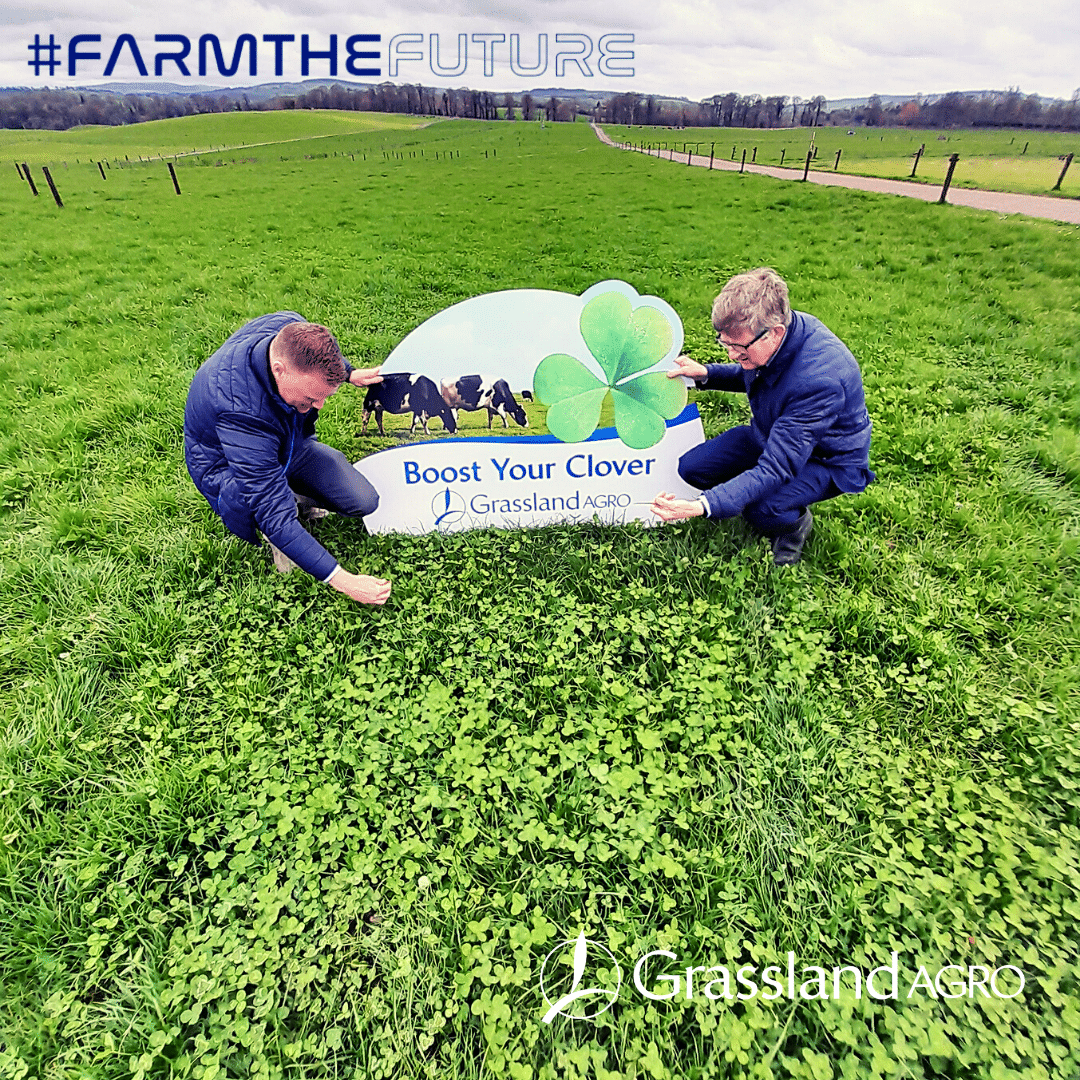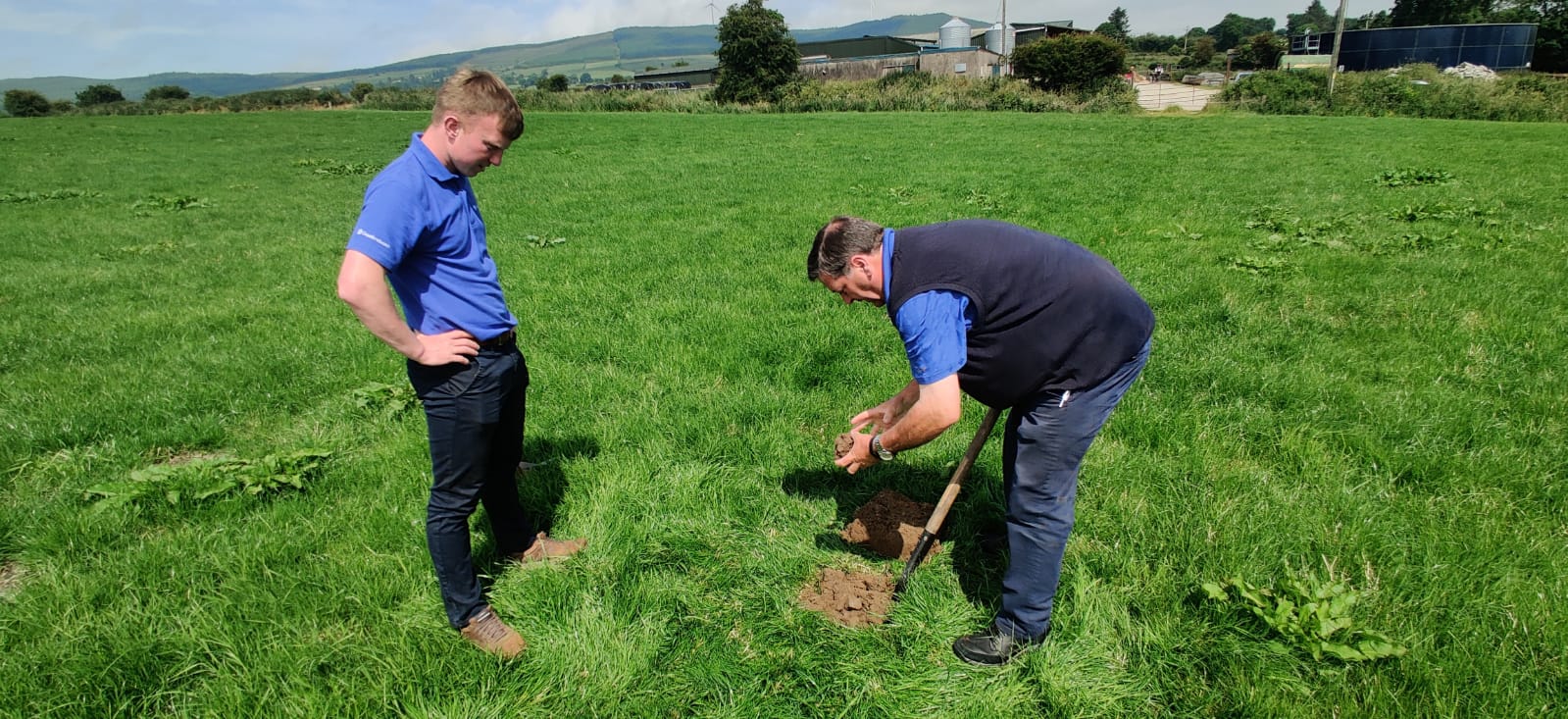What to consider before adding clover to your sward

The establishment and persistency of clover is a major issue on farms due to poor soil health.
There are three components to soil health that must be considered before incorporating clover in your sward.
David Corbett and Sean McMahon discuss the three pillars of soil health to consider prior to clover inclusion: soil structure; soil fertility; and soil biology.
Soil structure
Soil structure has a major influence on overall soil health and soil dynamics. Poor structure inhibits plant and root development.
Discussing soil structure, Sean said: “The roots are what take up nutrients from the soil. If we have poor structure, we’re limiting root development and limiting the potential of the crop.”
A good soil structure offers a habitat for both plants and biology to co-exist. This is particularly true with clover as the plant possesses roots and bacteria called rhizobia.

Soil structure can be assessed using the Grassland Agro Grass VESS app on both Android and Apple devices.
A Grass VESS dig can be seen in the first episode of Grassland Agro’s soil health series, which is featured below.
Soil fertility
Soil fertility is key to increasing and optimising sward efficiency on farm. Soil phosphorus (P) and potassium (K) fertility cannot be fixed unless soil pH is at optimum levels first. Optimal soil pH creates favourable conditions for plants and soil biology to live and flourish.
Grass and, in particular, clover are very sensitive to poor soil fertility. This is one of the major reasons for poor clover persistency and establishment on farms.
Soil fertility is directly related to soil structure. Therefore, the accessibility of nutrients in compact soils is limited.
Speaking about the influence of soil health on clover, David said: “You need to get the clover to germinate, and tiller, and also get the stolons to establish. They’re all working in tandem, so if any one of those factors is restricted, it’s going to create poor establishment.”
David and Sean discuss how soil compaction affects overall soil health in Grassland Agro’s second episode of their soil health series which is featured below.
Soil biology
The soil’s biology (i.e. plants, bacteria, fungi, earthworms, etc.) is extremely sensitive to poor soil structure and suboptimal soil fertility. The soil’s biology requires a favourable environment in which they can thrive.
A good structured soil with no acidity (pH 6.5) is the optimal environment for soil biology to thrive.
The soil’s biology is the engine of the soil; mineralising nutrients from soil reserves and fixing nitrogen from clover in order to increase farm sustainability and resilience.
Physiolith
Physiolith is a soil conditioner that offers the opportunity of tackling all three components of soil health. Physiolith is a calcium-based soil conditioner with the addition of plant stimulants from seaweed extracts.
The extremely reactive calcium source in Physiolith is an ideal solution to overcome soil compaction. It helps maintain soil pH which is crucial for increasing both grass growth and nutrient availability.

The seaweed extracts are focused on stimulating the plant rooting network and accelerate nutrient uptake, ultimately driving production. Physiolith will ensure establishment and persistency of grass and clover swards.
Clover boost
Clover Boost is a new fertiliser range developed by Grassland Agro which focuses on improving the persistency of grass clover swards through precision nutrient application.
Clover Boost is an N-P-K compound fertiliser with the addition of sulphur, magnesium, sodium and boron.
Clover Boost will help farmers over come the difficulty in managing the nutrient requirement of clover, which is an extremely nutrient-demanding crop and must be fertilised strategically.
The N-P-K levels of Clover Boost allows grass clover swards to be fed to the herd accordingly throughout the grazing season.
It contains Top-Phos, a new generation phosphorus product, which will overcome poor soil phosphorus and soil fertility issues on farm to ensure maximum nitrogen fixation from the clover plant.
Check out The Sod Pod episode 5;
Discussing the nitrogen fixation abilities of clover, Sean said: “It can take that nitrogen from the atmosphere fix it, and turn it into a plant available form.
“It can reduce the farmer’s reliance on bagged fertiliser.”

